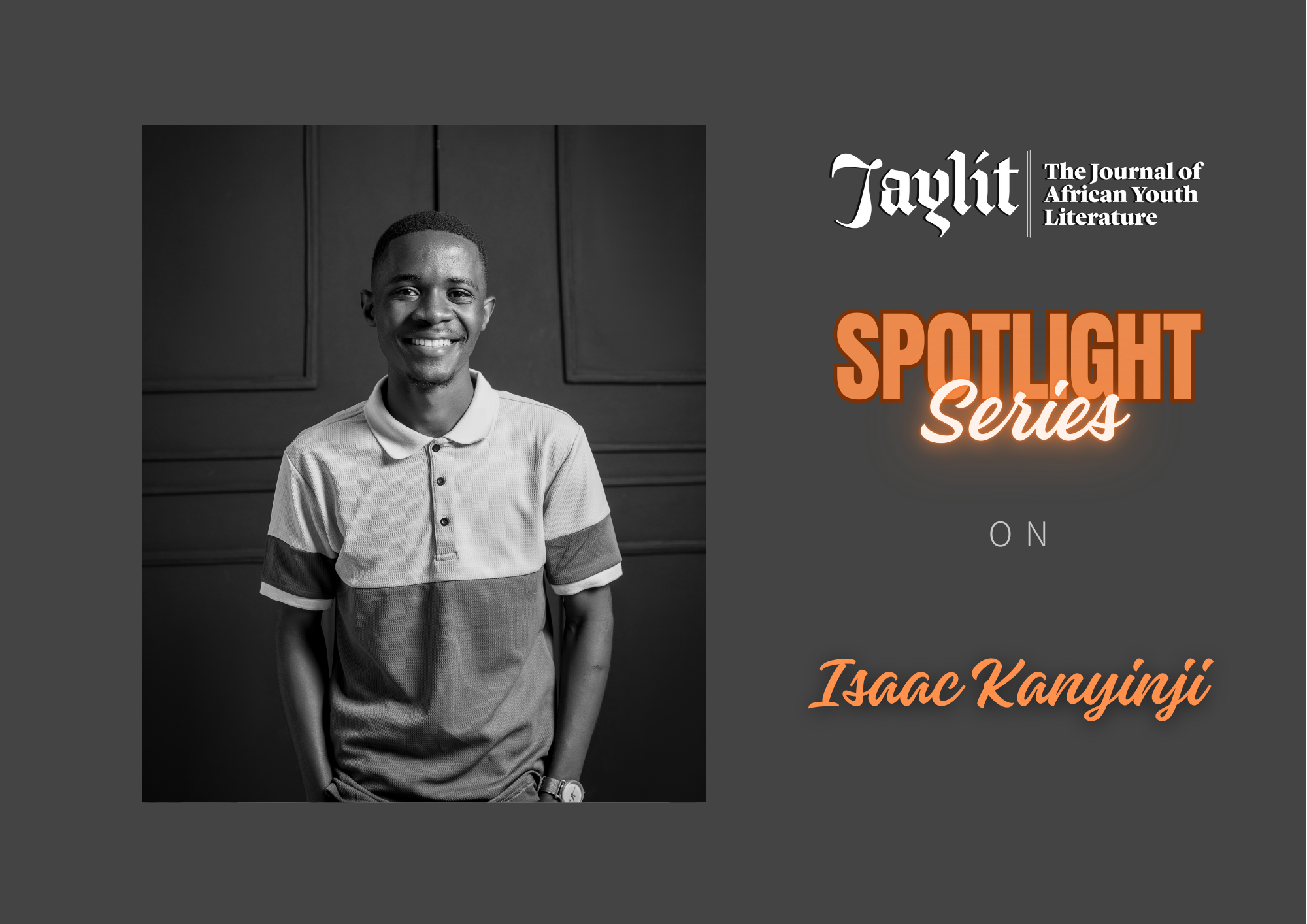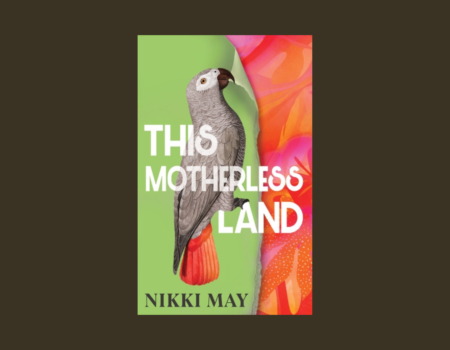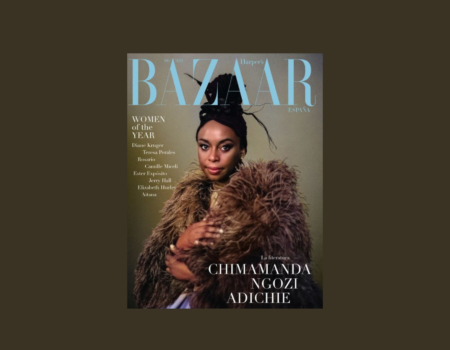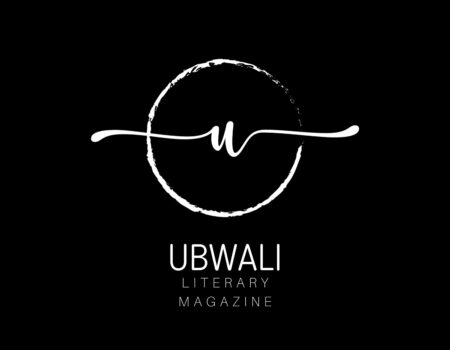Literature has always been a part of Isaac Kanyinji’s life since he was a child, thanks to his mother who made reading a currency with which he got most of my childhood wants. Growing up in Zambia, he was bred in the confines of music and stories, humming along to a Lucky Dube playlist whilst his father shaved his beard on a Staurday morning, and reading a story to his mother at the day’s end. These experiences and more contributed a great deal to shaping him into the writer he his today.
Most of Isaac’s indoor time as a child was marked with Lucky Dube’s music playing as the soundtrack in the background as he went about his activities. Back then, he never imagined that he would be moved by the same music to write his very first poems later in life. This impact makes him view Lucky Dube as the first poet he listened to, because when he sat to pen his own writings much later, he found himself heavily influenced by the reggae legend’s music.
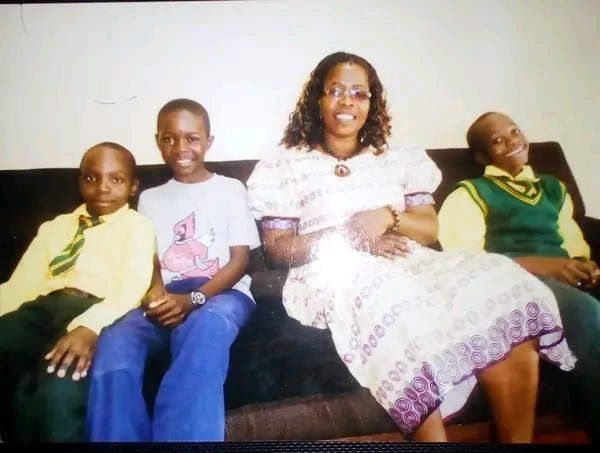
(Picture Credit: Andrew Ngoma)
Back then, stepping outside for play felt like walking into a whole new world. Here, play was completely different. He approached his outdoor plays with a literary lens, using things he learned from books in playing and questioning characters’ actions in stories. He says, “The questioning is something that remains quite evident even in the person I am today given that most of my writing comes from questioning the things around me.”
His dedication to following these paths he charted from his childhood experiences has earned him several literary recognitions, including emerging as the winner of the 2025 Ubwali Hope Prize for his poem, ‘A 2019 Survey on How People Imagine Themselves Dying’.
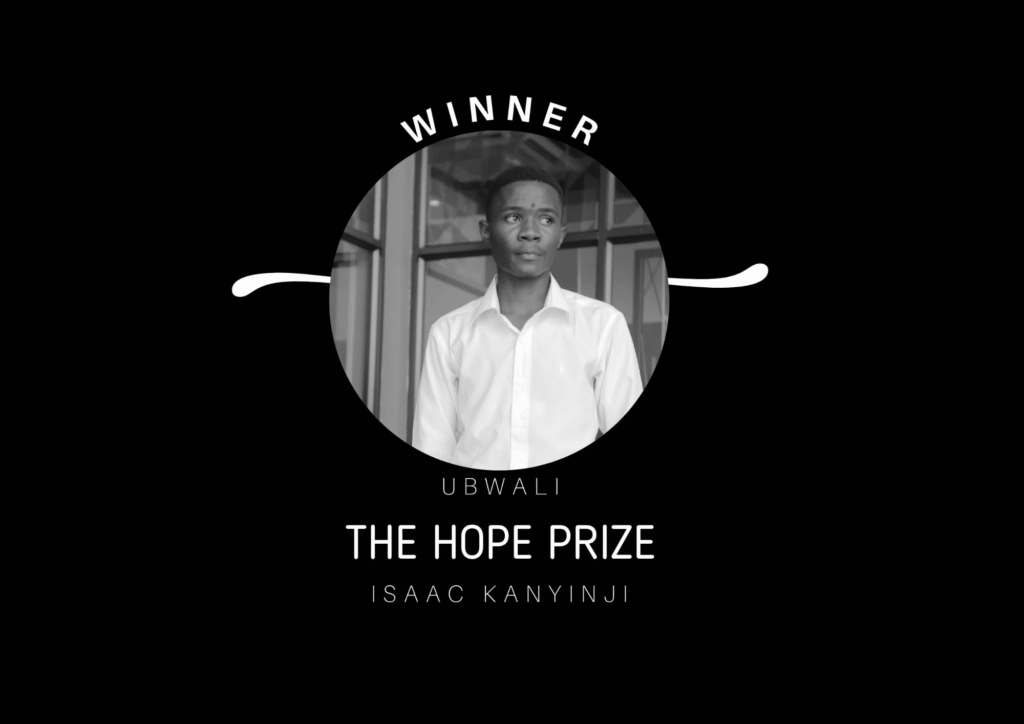
Isaac believes most writers begin as readers, and this clearly explains why he has been on the reading end of literature for a long time. Although he wrote his first story in the 9th grade, Isaac didn’t have the intention of sharing his works with anyone at the time. However, when his story got into the hands of a few people, the positive feedback he received from these readers helped him develop an inclination to write more. With his focus mostly on reading, he was always fresh and ready whenever this inspired the need to write a story. And until now, he never fails to trap fleeting moments, starting to write whenever the urge comes.
Like most writers, Isaac draws inspiration from his immediate environment and lived experiences, but he is also able to tap into environments and experiences outside of his reality, with empathy and the ability to put himself into other people’s shoes playing a huge part in that. As someone who is big on reggae music, this genre of music plays a predominant part, shaping the choice of themes around which he writes.
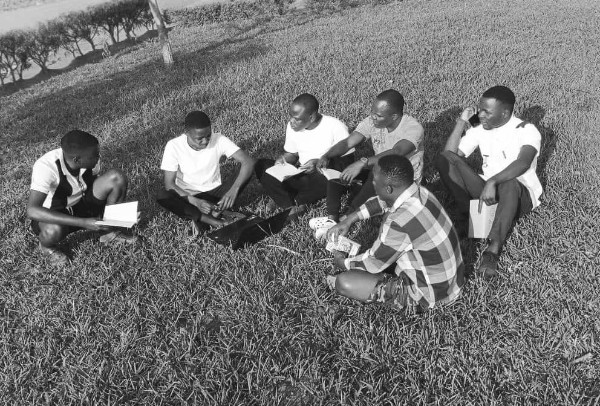
(Picture Credit: Andrew Ngoma)
Isaac’s love for reggae music has also played a predominant part, shaping the choice of themes he explores in his writings. His major influences have been Ocean Voung, Khaled Hosseini, Ben Okri, and Sembene Ousmane, among others.
According to Isaac, if a breakthrough means this glorious moment where one feels like they have a go ahead from the universe to continue on their path, he’s afraid his own has not come because there is always more to dream of. However, building on that background, he feels his breakthrough came when he misplaced his book containing his very first attempts at fiction and someone who loved his writings found it and pushed him to write on. While he has gotten recognition in form of accolades and other things, he would not love to attribute any of those as his breakthrough because, before any of the accolades came, that someone made him believe his stories were worth sharing with the world.
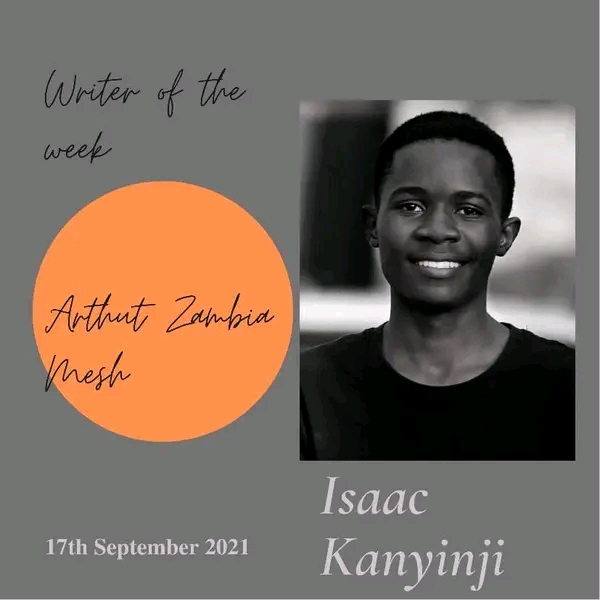
Yet, he holds winning the 2025 Ubwali Hope Prize dear to his heart. Being shortlisted alongside such great talents, he did not, in his wildest dreams, expect to win. Acknowledging his humble beginning, his first acceptance also holds an equally special place in his heart, even after multiple acceptances and publications since then.
All of us JAY Lit are rooting for the incredible 2025 winner of Ubwali Hope Prize as he currently works on his debut poetry collection. His vision is to be just be able to write and put out as much work as he can, because writing is his very first love.
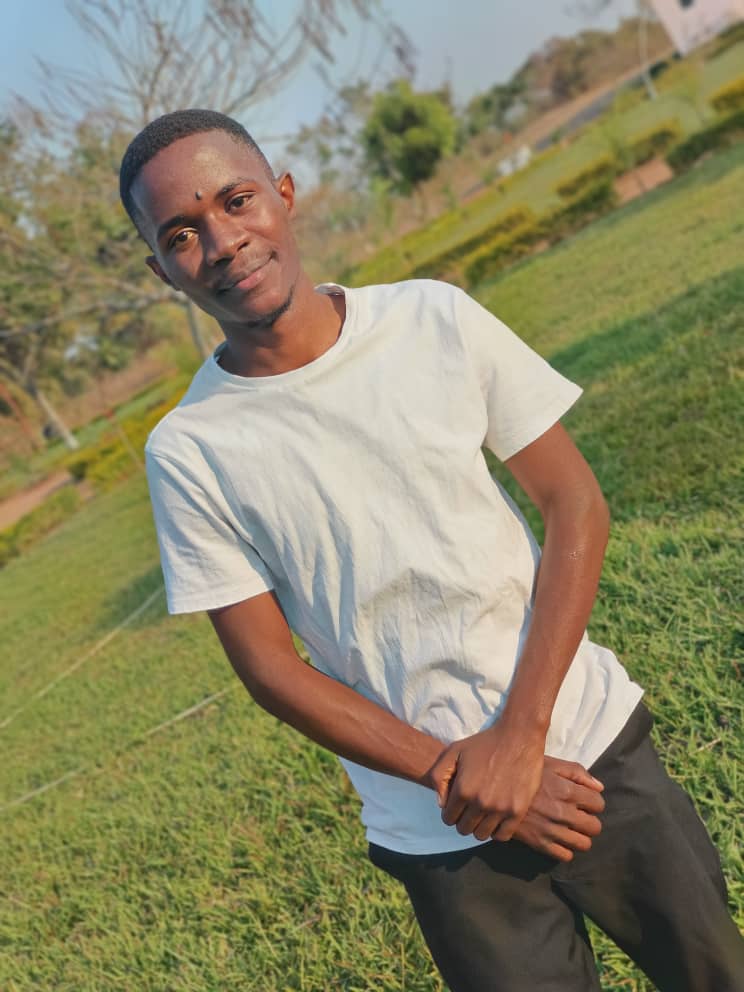
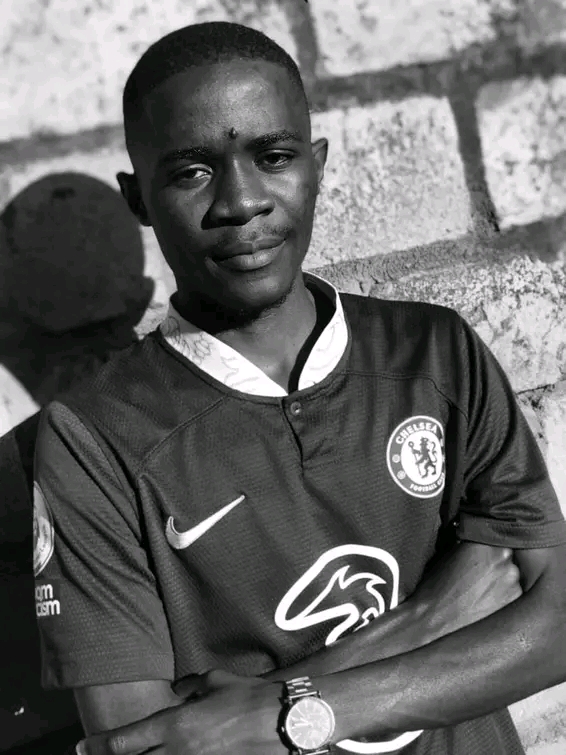
Sarah Adeyemo
Sarah Adeyemo, Swan IX, is a Nigerian poet, writer, editor, spoken word artiste and communication expert. The debut author of “The Shape of Silence”. She draws inspiration from solitude and experiences. She is a fellow of the SprinNG Writing Fellowship. Her works appeared or are forthcoming in Akpata Magazine, The Shallow Tales Review, The Muse Journal, The Weganda Review, Everscribe Magazine, Afrillhill Press, Poems For Persons Interest, TV-63 Magazine, Northern Writers Forum Journal, Eboquills, Rinna Lit. Anthologies, and elsewhere. She tweets @SarahInkspires.


